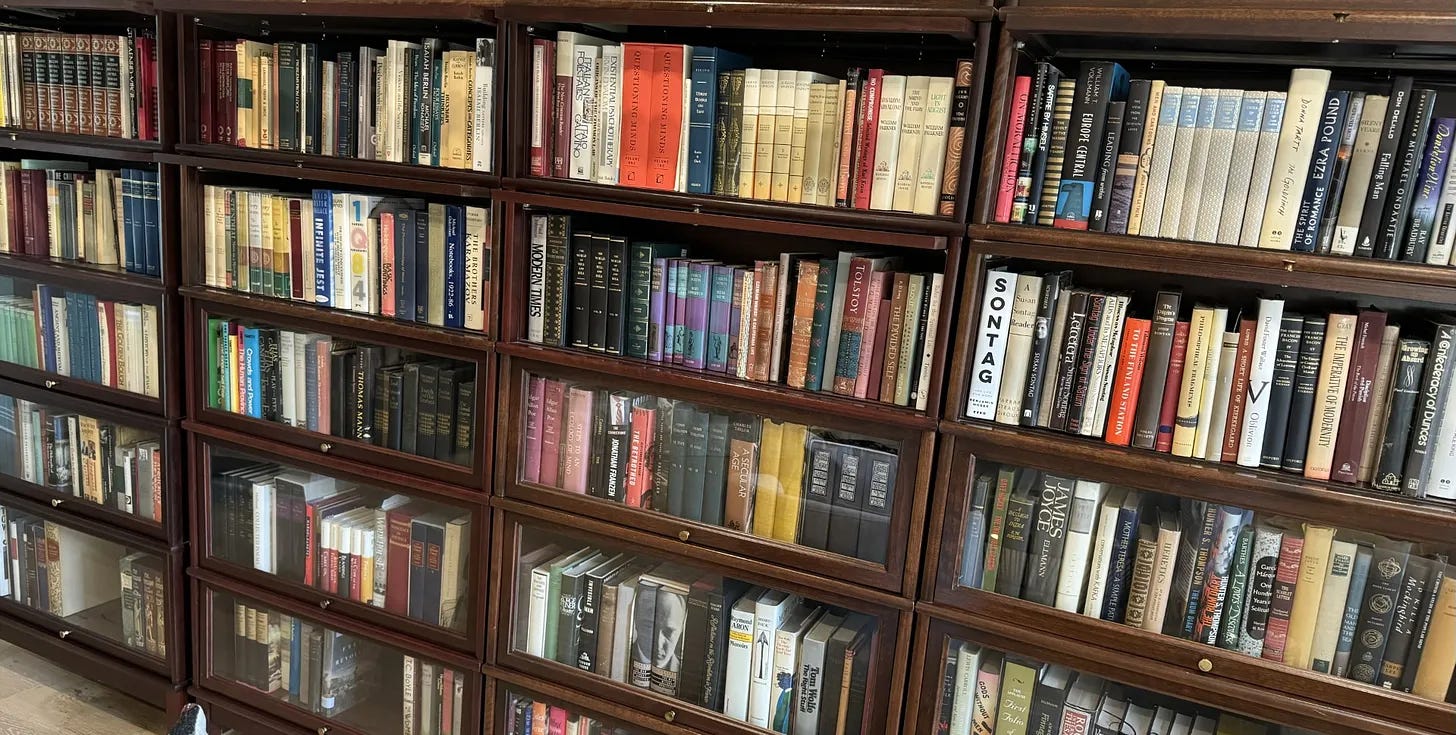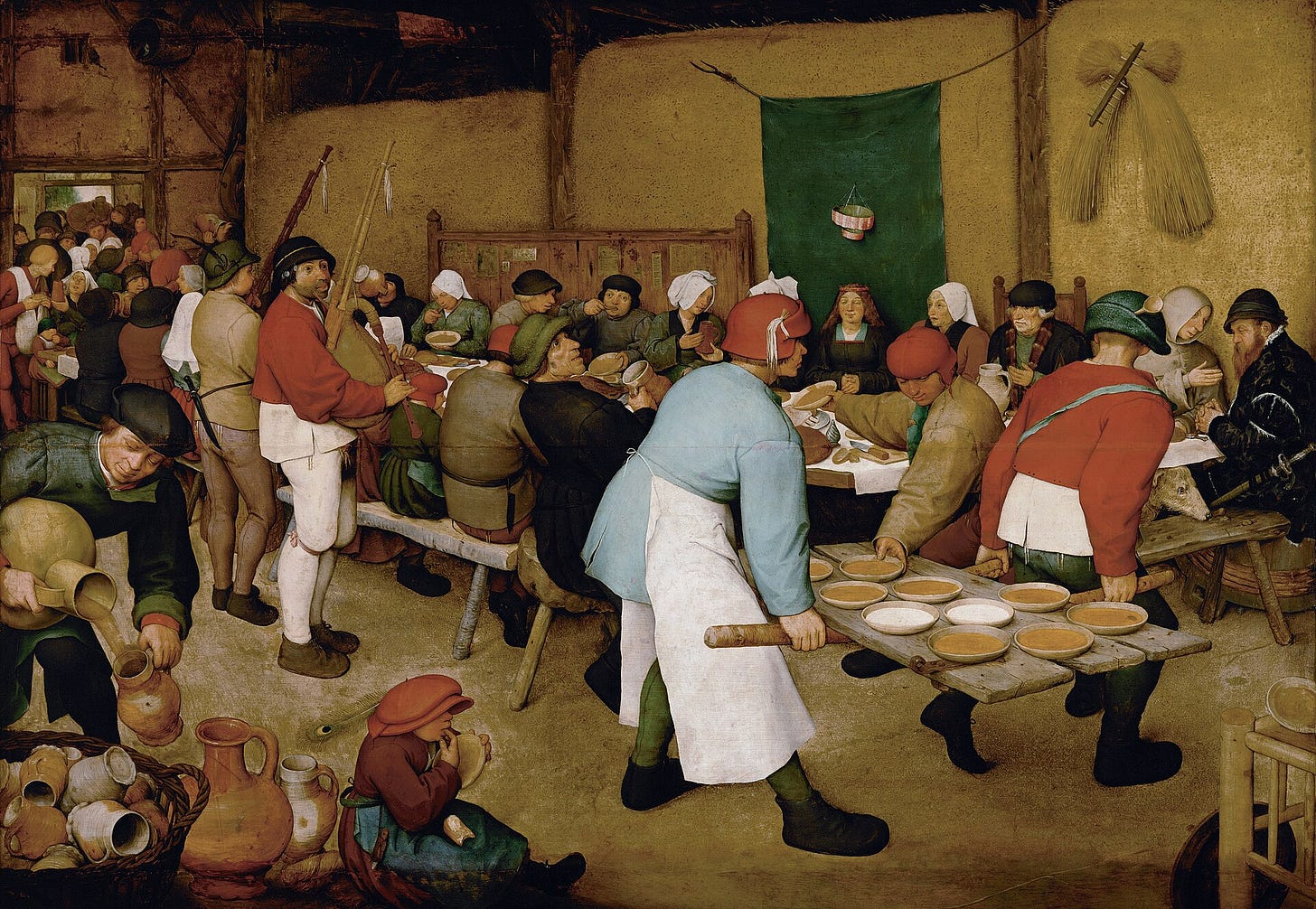A 12-Month Immersive Course in Humanities (Continued)
Here's our reading for months 4-5—get ready for a whirlwind tour!
Today we continue our 12-month immersive program in arts and culture. Below I’m sharing my week-by-week guide for months 4 through 6.
(For Part One—covering weeks 1 through 13, click here.)
As some have noticed, our approach is not strictly chronological—although it is loosely chronological. I am trying to pace and diversify our efforts in order to optimize the reader experience.
Here are the ground rules:
I will keep this manageable—we will only do around 250 pages of reading per week. That’s a daunting constraint, and rules out some options (no War and Peace in this course, sorry). But even with this limitation, we can still work wonders.
I’ll also suggest music for each week.
I’ll also add a visual arts suggestion (find it online) for each week.
Don’t be discouraged if you hit rough patches along the way. That’s part of the process. As they say in sports training: “No pain, no gain.”
If you can do this as part of a group, you will gain extraordinary benefits from discussing the weekly readings. But even solitary travelers will benefit from this journey.
If you want to support my work, please take out a premium subscription (for just $6 per month).
Those who want to pursue this in a group can connect with each other in the comments section.
You may also want to check out various online resources (such as video tutorials) to enrich and expand your responses to this material. For example, I point you to the Catherine Project, which offers online courses on many of these works.
RELATED ARTICLES:
I’m Forced to Defend the Humanities in a Room Full of Medical Students
The Real Crisis in Humanities Isn’t Happening at College
A 12-Month Immersive Course in Humanities
My 12-Month Immersion Program in Arts & Culture (Part 2 of 4)
By Ted Gioia
I am envious of readers who are encountering these works for the first time. There are so many riches in this 13-week installment of our humanities program.
WEEK 14
Virgil: Aeneid, Books 1-2
Ovid: Metamorphoses, Book 1
Selected Roman poems and aphorisms (Horace, Catullus, Sulpicia, Martial)—and let’s throw in some Latin proverbs too!
We’re starting with extracts from the two most significant long poetic works in ancient Roman literature. These are essential to anyone who wants to understand the evolution of epic or narrative, but they will also help you grasp the national pride, (mostly borrowed) mythology, and homegrown decadence of the Romans.
These extracts are only around one hundred pages in total. In addition, you should read a selection of Roman poems, proverbs, and aphorisms. The Portable Roman Reader, edited by Basil Davenport, offers a useful sampling of these.
Musical listening for week twelve: Selected arias and overtures from Puccini and Verdi
Art: Cave paintings from France (and elsewhere).
WEEK 15
Boethius: The Consolations of Philosophy
Boethius has been called the “most learned man of his day,” but he was also a very practical operator in the halls of power, even working for the Emperor. Ah, that didn’t prevent him from getting executed by the Ostrogoth King Theodoric.
While in prison awaiting his death, Boethius wrote one of the deepest and most luminous philosophical works of all time. The Empire was in decline, but philosophy—appearing in these pages as goddess and muse—still offered wisdom and consolation.
This is timeless guidance for tough times.
Musical listening: Schubert: String Quartet No. 14 (Death and the Maiden); Mozart: Requiem.
Art: Albrecht Dürer; Hieronymus Bosch; Pieter Bruegel the Elder.
WEEK 16
Lao Tzu: Tao Te Ching
Sun Tzu: The Art of War
We continue with our theme of wisdom and guidance—which are the key reasons why we are pursuing this entire project. But the two works here are hardly esoteric, and continue to shape worldviews and events in our own time.
The authors here are not related—don’t be confused by the similar names—but both left us contrasting works of ‘advice’ (broadly defined). Yet the ethos of these books could hardly be more divergent: One is almost brutally practical, while the other embraces multilayered and mystical thinking almost to the point of paradox.
But do you need to pick one tao (path or way)? Reading both of these in the same week is almost a provocation—so be prepared.
Musical listening: The Beatles (The White Album, Sgt. Pepper’s, Abbey Road), and Rolling Stones (Let It Bleed, Beggars Banquet, Exile on Main Street).
Art: Chinese architecture.





